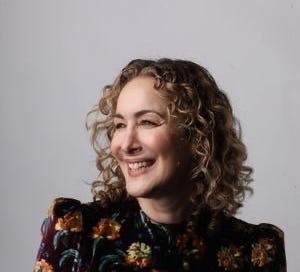Intimate conversations with our greatest heart-centered minds.
I first reached out to Joanna Rakoff nearly a decade ago after reading her extraordinary memoir My Salinger Year. It’s tender depiction of New York City moved something deep in me. I’d recently left Manhattan, after twenty-five years, and before properly settling into my new home, found myself quite ill from the aftermath of head and brain injury. I was often scared and lonely, and my messages to Joanna reflected this. But she was so always unfailingly kind and encouraging, despite my messages being long and me being a stranger.
Over the years, I’ve grown healthier and, if possible, Joanna even kinder. Despite having a full and demanding life, she always makes time to offer guidance, humor, insight. An avid reader, Joanna unflaggingly promotes fellow writers’ books on social media, makes herself available for talks, and shares openly about struggles that may help others. She also teaches, writes brilliant essays and, of course, brilliant books.
My Salinger Year, Joanna’s memoir about working as an assistant to J.D. Salinger’s agent, manages to be both achingly gentle and unflinchingly keen-eyed. It became an international bestseller, has been translated into fifteen languages, and made into a riveting Showtime movie starring Margaret Qualley and Sigourney Weaver. Her novel, A Fortunate Age, explores, amongst other things, the beauty and sometimes devastation of pursuing your dreams in New York City. Joanna manages to convincingly enter the psyches of so many disparate characters, I was bowled over.
Born in the Hudson River Valley, Joanna spent much of her life in New York City. She holds degrees from Oberlin and University College London. A mother of three, married to the love of her life, she currently lives in Cambridge, Massachusetts.
We talked about bullies, the myth of shitty first drafts, and small joys.
You’re truly one of the kindest, most generous people I know. Could you share a bit about your life philosophy?
Oh, gosh, I can't believe that's true. I'm a person who always feels like I'm not doing enough. I'm not reaching out enough. I'm not kind enough. I'm not a good enough friend. I'm not a good enough mother.
I have a few different life philosophies that have evolved over the years. Growing up, my family and I were very out of place in the area that we lived. Starting when I was in kindergarten, I was bullied quite severely. That experience made me feel like I never want to behave unkindly if it's possible to behave kindly.
By the same token, for a long time afterwards, there was definitely a piece of myself that felt this anger and resentment toward the kids who were just horribly mean to me. Though I was physically bullied--in ways it's hard for me to discuss even now, forty years later--I actually feared more the emotional torment, which left me in a state of constant terror. And that influenced the way I looked at the world. Internally I would dismiss people out of hand and be a bit judgmental toward people that I felt were close minded, ironically. As I got older, I began to have more perspective on the world and also on myself, and I thought about what led those kids to be so cruel to me. In a way the bullying made me a fiction writer and a journalist. It made me interested in everyone's story. It made me try to give everyone the benefit of the doubt. My husband and some of my friends feel this is my fatal flaw: I don't have enough boundaries. I'm sometimes taken advantage of and sometimes spend too much time doing things for other people rather than for myself. I don't guard my time and my mental space as well as I should. And I know that's true, especially as I get older.
Yet, I think it's fundamental to who I am. My father passed away a long time ago, and my mother is ninety-two. My parents were one of those marriages where they had very different personalities and very different ways of interacting with the world. My dad was a very gregarious, extroverted former comedian who would go into a packed restaurant and ingratiate himself with the host, not by giving him money, but just by being like, “Oh, I love your dress. Tell me about that.” That adage, you catch more flies with honey than you do with vinegar, my dad was like a walking example of that. He was loved and known everywhere he went.
My mom was the opposite. She’s a very introverted person who, because of the patriarchy, because of the milieu into which she was born coming of age in the 1950s, felt like she had to be an extrovert and have dinner parties and be in the world and what have you. She's a very cranky person who would snap at waiters and that sort thing. My mother has a million wonderful things about her but as I moved through the world with my parents, I consciously felt like I wanted to be more like my father in terms of the way I interact with people.
I feel like you're an empath. Do you feel like that about yourself?





